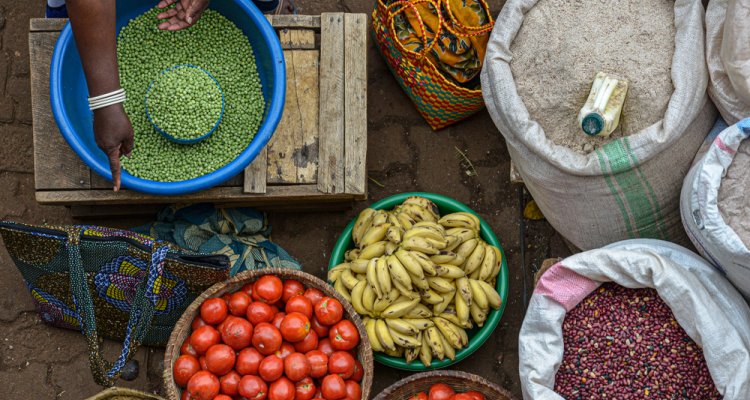
News
Mainstreaming cold chains for agriculture in Rwanda
Despite strong economic growth and falling poverty levels, Rwanda faces significant challenges in meeting food demands and food security. Malnutrition remains a concern with overall stunting rates at 38% of the population. Rwanda aspires to attain upper middle-income country status by 2035 and high-income status by 2050, with the intention of providing high quality livelihoods and living standards to Rwanda citizens by the middle of the century. One of the priorities of the Ministry of Agriculture and Animal Resources, described in the strategic plan for agricultural transformation, is to develop inclusive markets and create value addition through improved market linkages, including the development of cold chains.
The World Bank Group and government of Rwanda have developed the Sustainable Agricultural Intensification and Food Security Project (SAIP) to increase agricultural productivity, market access and food security in targeted project areas. One of the components of the project is to invest in postharvest handling and infrastructure, to develop the capacity of farmers and their organizations on stronger and sustainable agricultural value chains. This led to the ambition to mainstream energy-efficient cold chains in Rwanda.
Roadmap mainstreaming cold chains
On request from the World Bank, Wageningen University & Research and Vanguard Economics will provide technical assistance to identify opportunities to mainstream energy-efficient cold chains in Rwanda. A strategic and practical roadmap will be created to be used in the SAIP project on paths to the implementation of energy-efficient cold chains in Rwanda and how this can be supported by the government through means such as policy and access to finance.
To prepare this roadmap the consultants will analyze the current situation in Rwanda, prepare an overview of global energy efficient technologies and check what is useful for the Rwandan situation. Moreover, the consultants will analyze 8 relevant global case studies to derive lessons learned applicable for the Rwandan situation, including dairy and livestock cases. World Bank will use this outputs for another project in Bangladesh, facing similar challenges on mainstreaming energy efficient cold chains.
WUR has over 80 years of experience in post-harvest management, uniquely combining expertise on physiology, cold chain technology and market access. Vanguard Economics brings on board a wealth of background information on the Rwandan agriculture and economics and will engage with local stakeholders.
Cold chains play a vital role in food systems, by improving the market access of farmers, reducing food loss and contributing to improvement of diets with healthy and fresh products. However, a good uptake of cold chain facilities is essential to make sure robust and energy efficient cold chains, accessible for smallholders are being realized. In this project we aim to provide clear solutions applicable for Rwanda situation so that in a few years many smallholders have experienced themselves the benefits of this system.